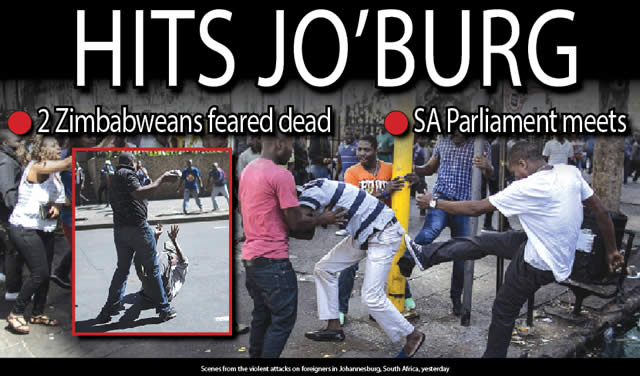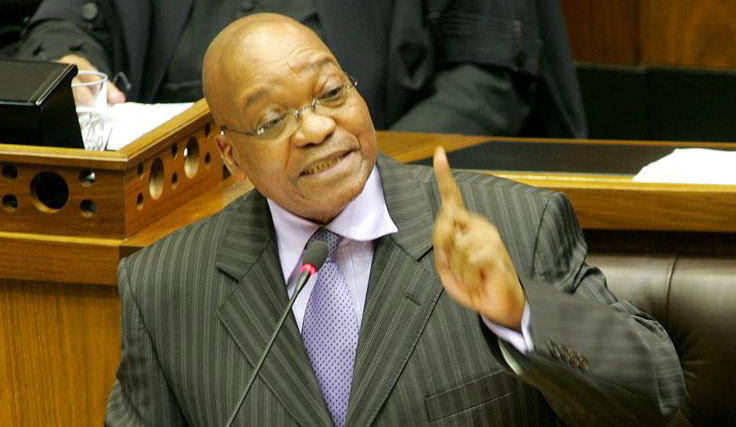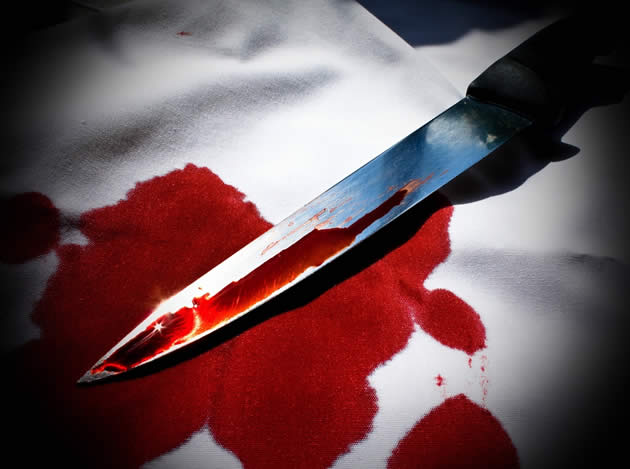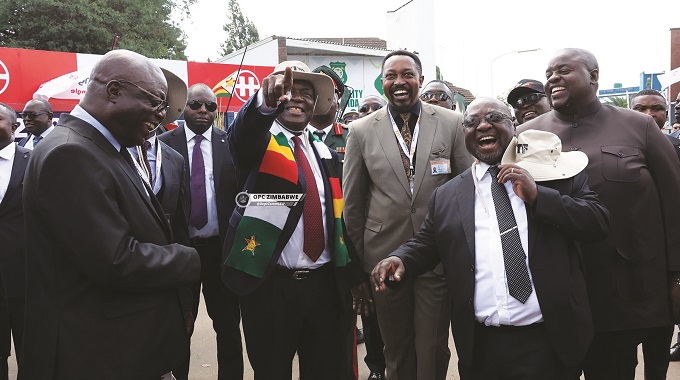Xenophobia hits Jo’burg -2 Zimbabweans feared dead -SA Parliament meets


Mashudu Netsianda and Thupeyo Muleya Chronicle Reporters—
ZIMBABWE’S embassy in South Africa last night said it was investigating reports that two of the six people killed in xenophobic attacks in Durban are Zimbabweans. Isaac Moyo, Zimbabwe’s Ambassador to South Africa, said they were urgently trying to confirm if the country’s nationals were among the dead.“At the moment, the issue of deaths is still hearsay and we’re yet to verify with the assistance of the police,” he told The Chronicle by telephone.
“We’ve heard that there were some Zimbabweans among the dead, a woman and a toddler, but for now we can’t confirm as we’re yet to visit the mortuaries so that we’re able to positively identify the bodies.
“What I noticed [on a visit to Durban to see the injured and displaced] is that we had quite a number of our people who were limping and some had swollen heads.”
South Africa is in the grip of a fast-spreading wave of anti-foreigner violence – the worst since 2008, when 60 people were killed and 50,000 forced to flee their homes, among them Zimbabweans.
South African politicians and celebrities yesterday made impassioned pleas for an end to the xenophobic attacks as the violence reached Johannesburg.
President Jacob Zuma, who has set up a ministerial task team to find solutions to the violence, last spoke publicly on Friday last week. Since then, six people – including a four-year-old boy – have died, mostly in the seaside city of Durban.
The opposition UDM, led by Bantu Holomisa, has forced a snap debate in the South African parliament at 2PM today “to condemn this barbaric behaviour”.
Holomisa said: “Parliament is a symbol of authority. All parties must send a strong message to the world that we’re not part of this nonsense.”
President Zuma has reportedly asked to make a statement before the debate.
Sports Minister Fikile Mbalula, using the hashtags #NotInOurName and #SayNoToXenophobia, said on Twitter: “We, all peace-loving people, stand together against all forms of attacks on innocent people.”
Ruling African National Congress stalwart Winnie Madikizela-Mandela told of her heartbreak at the violence, which started in Soweto in January before gathering frightening momentum in recent weeks.
“This is not the freedom we fought for. I’m heartbroken. This has to stop,” said the ex-wife of anti-apartheid icon, Nelson Mandela.
Singer Thandiswa Mazwai, of the group Bongo Maffin, expressed concern at President Zuma’s failure to take visible leadership of the crisis.
“Sometimes in a crisis,” Thandiswa said, “the President might interrupt TV and radio broadcasts to condemn an act and ask the people behlise umoya (tamper their anger). Kuyenzeka (it can happen).”
Ambassador Moyo said at least 2,000 foreigners had been displaced in the two-week long unrest in Durban.
Embassy officials had started documenting Zimbabweans who were affected during the attacks with the assistance of the host government and non-governmental organisations at Chatsworth Camp in Durban.
“We’ve visited Chartsworths Camp and the situation has somewhat slightly improved. Most of the people at the camp are Zimbabweans and we’re now in the process of documenting them so that we get the exact number of those affected,” said Moyo.
“We’re also looking at ways of assisting them with voluntary repatriation and so far the number of those that want to go home is higher than that of those who want to return to the local community.”
Moyo said he will only be able to give figures once the process has been concluded on Sunday.
Embassy staff were also encountering challenges in cases where undocumented South African women were insisting on travelling to Zimbabwe with their husbands.
“So far, we’ve 10 undocumented South African women who are insisting on going to Zimbabwe with their husbands. We also have 120 Zimbabweans who left their properties under the attack of South Africans. These will collect their property tomorrow (Thursday) with the assistance of the police,” he said.
The majority of people at the Chatsworth Camp were women and children, the ambassador said.
There are several shelters that have been established around Durban, but Chatsworth Camp is the largest holding centre.
Home Affairs Minister Kembo Mohadi last night said the government was “seized” with the matter, without elaborating.
Information Minister Professor Jonathan Moyo and his Water and Climate counterpart Saviour Kasukuwere yesterday both used Twitter to draw attention to the on-going carnage.
The targeting of fellow Africans by armed South African mobs was “worse than apartheid”, said Kasukuwere, who is also Zanu-PF’s national commissar.
“These attacks are a shame on us as Africans. Honestly, treating each other worse than apartheid is sad,” the minister said.
Prof Moyo said Zulu King Goodwill Zwelithini should bear the cross for “igniting the fires of xenophobia” after telling a Durban radio station, Gagasi FM, that immigrants were “lice” and should all leave South Africa. The Zulu king has been backtracking since after anti-foreigner attacks swept through Durban.
“I just heard an audio of King (Goodwill) Zwelithini’s xenophobic statements as recorded by Gagasi FM. It’s a crime against humanity, Rwanda-style,” said Prof Moyo, referring to the Rwandan genocide in which radio was used to direct tribal massacres.
King Zwelithini is heard saying in the Gagasi FM audio: “We must remove these lice from our heads and let them burn in the sun. All foreigners in South Africa are lice.”
South African media reported that President Zuma’s son, Edward, called on the government to “put a stop to unnecessarily accommodating foreign nationals”. He said he was not speaking for the ANC leader.
Prof Moyo said so far, official statements in South Africa on xenophobic attacks sounded elicited. He urged the neighbouring country to act on xenophobia.
“What’s important to note is that the South African government has an obligation under the Vienna Declaration to prevent xenophobia within its borders through a programme of action. What’s needed is action not words,” said the minister.
South Africa’s State Security Minister David Mahlobo was yesterday quoted in the media as saying xenophobia was under control.
Mahlobo, who was addressing local traders and small business owners at the eThekwini City Hall, said the attacks on foreigners were barbaric and inhumane.
“We condemn the act in the strongest terms. Don’t let people use our name to commit criminal acts in our country, whether you’re South African or a foreign national,” said Mahlobo.
“We’ve heard that local traders say that foreigners are taking their jobs. We want to tell you that we’re on top of the situation, we know that we’re dealing with a big problem.
“We can’t, as South Africans, attack foreigners. That’s not the peace or friendship that’s enshrined in the constitution. Let’s stand together and say, ‘not in our name!’”
Yesterday, there was widespread disruption to business in Johannesburg as gangs moved around looting foreign-owned shops and attacking the owners. Many businesses were forced to close.
As evening fell in downtown Johannesburg, foreign shops remained closed.
There was a heavy police presence in Jeppestown after hostel dwellers stoned passing vehicles and injured one motorist ahead of alleged planned attacks on foreigners last night.
Police revealed that 74 people had been arrested countrywide for various crimes ranging from murder to being in possession of dangerous weapons.










Comments